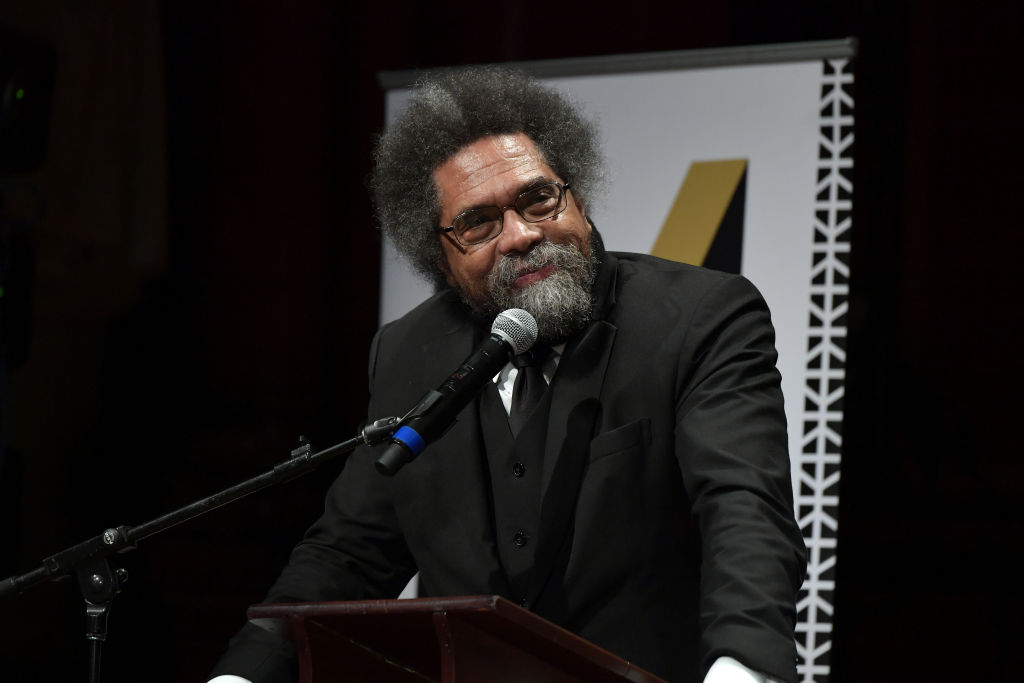Cornel West Reveals Harvard Reversed Tenure Stance Only After Bad Publicity
Cornel West Reveals Harvard Reversed Tenure Stance After Bad Publicity: ‘I Knew I Had To Go’

Source: Paul Marotta / Getty
The saga over Cornel West‘s impending departure from Harvard University over a controversy about tenure gained a bit more context this week about what the noted academic previously described as his disrespectful treatment by the storied Ivy League institution.
West announced on Monday that he would be leaving Harvard because it failed to give tenure to the famous professor of philosophy at Harvard Divinity School. He said in an interview with the Boycott Times that the decision against granting him tenure made him feel “disrespected and devalued.”
But what West did not say at the time was how Harvard apparently buckled to the mounting pressure of negative media attention from the ordeal, reversing course with university leadership saying they would consider granting him tenure.
“After the public outcry, the administration changed their minds: they said, ‘Now we’re open to a tenure review,’” West told the Harvard Crimson. “You can’t impose and force people to respect you in that sense. That’s another reason why I knew I had to go.”
Harvard previously was adamant about not budging from its stance against tenure. Instead, West said, the school offered him “money and a prestigious chair.”
But West said “it was not about money or prestige” and was moving forward with leaving Harvard.
“I don’t know if you all have ever heard of any professor who’s had a chair without tenure, but I can rest be assured that it’s very, very, very rare for any professor in the history of Harvard,” West said.
West has been on his second stint at Harvard. He left his tenure-track position in 2002 and returned to Harvard in 2017 by accepting his current non-tenure-track role.
Last month, West told the Boston Globe that his recent request to be given tenure was turned down and that he took the decision personally.
“It is once again this issue of just not putting up with being disrespected,” West said in the interview published on Feb. 19. He added later: “But I wasn’t raised to put up with being disrespected or tolerate disrespect. I don’t try to negotiate respect.”
West suggested Harvard was being “childish” and explained to the Boycott Times that his decision to leave the university came amid what he described as “Magnificant support” among his fellow professors.
“But,” West said, “we are in such trouble that we don’t have time for this kind of a childish myopia of a highly commodified and bureaucratized Harvard that finds it difficult to follow through on its own seeking for Truth, not just intellectually, but institutionally.”
West announced on Monday that he would be taking his talents to Union Theological Seminary, which counts the recently elected Georgia Sen. Rev. Raphael Warnock among its alumni. The seminary in New York City said it was “thrilled” at the return of West, who had his first job there out of college at the age of 23.
It was unclear if West considered leaving Harvard for any other institutions. After West went public with the Globe interview, Black-minded social media users suggested he should look into working at a historically Black college or university that could greatly benefit from such a high-profile professor.
Regardless, West said people shouldn’t think he’s treating Union Theological Seminary as a second choice and promised to prioritize marginalized people in his work.
He said it wasn’t “a move out of default. Not at all. I’m going with a smile. I’m going fired up. And I’m going with my focus on oppressed people around the world.”
While colleges and universities are hiring an increasing number of minority professors, very rarely are they put on a tenure track.
“Just as the doors of academe have been opened more widely than heretofore to marginalized groups, the opportunity structure for academic careers has been turned on its head,” a study conducted by TIAA Institute said in part. “The available jobs tend, less and less, to be the conventional ‘good’ jobs, that is, the tenure-track career-ladder jobs that provide benefits, manageable to quite good salaries, continued professional development opportunities — and, crucially, a viable future for academics.”
The topic was also explored when the Florida Journal of Educaional Administration & Policy published a report in 2011 that found similar results as TIAA. In addition to “barriers to tenure and promotion [serving] to disrupt the ability of faculty of color to perform in their faculty roles satisfactorily,” the report addressed how “academic bullying has also served to limit faculty of color in their ability to attain tenure and promotion on traditional campuses.”
SEE ALSO:
Cornel West Is Leaving Harvard After Tenure Controversy: ‘I Can Only Take So Much Hypocrisy’
‘Disrespect’: Cornel West Says Harvard Won’t Give Him Tenure

















